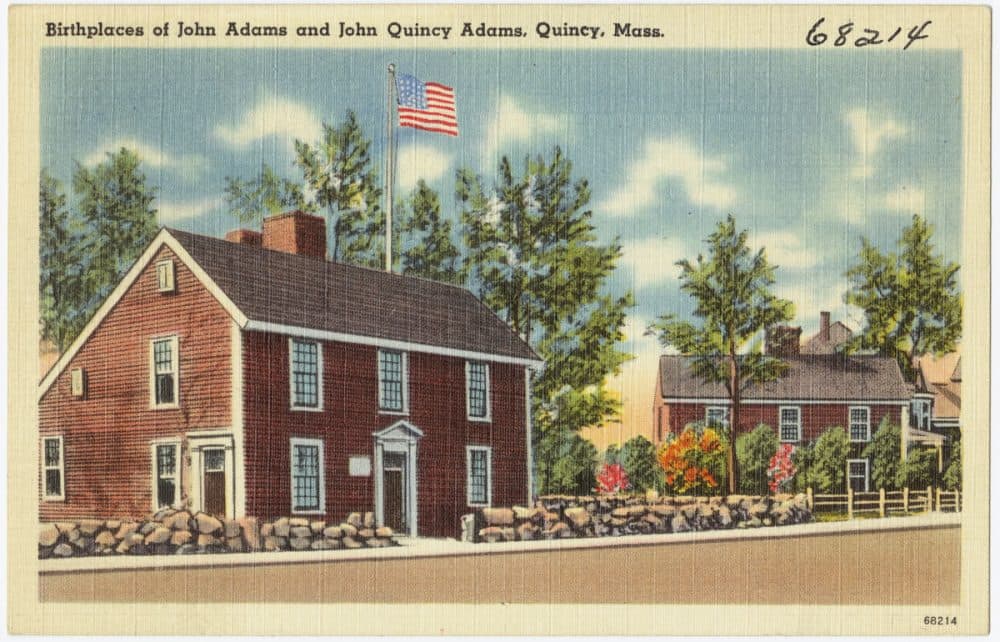Advertisement
Rethinking John Quincy Adams As A Visionary
Resume

In 1820, John Quincy Adams wrote in his diary, "Literature has been the charm of my life and, could I have carved out my own fortunes, to literature would my whole life have been devoted."
Instead, the gifted writer and deep thinker continued the tradition set for him by his father and grandfather, and served as his country’s sixth president. And while he presided over a period of peace and prosperity, he is often criticized as a failed one-term chief executive.
Throughout his life, he kept a diary that Fred Kaplan, the biographer of Mark Twain and Abraham Lincoln, among others, calls “the most valuable firsthand account of an American life and events from the last decades of the 18th century to the threshold of the Civil War.”
Fred Kaplan will appear at Adams National Historic Park in Quincy on May 29.
Guest
Fred Kaplan, biographer and professor emeritus of English at Queens College and the Graduate Center of the City University of New York. His new book is "John Quincy Adams: American Visionary."
More
- "Adams was a stony, unlovable bridge. More of a democrat than his father, he was also more of a stick. His latest biographer, Fred Kaplan, whose previous subjects have ranged from Charles Dickens to Gore Vidal, argues that Adams doesn’t fully deserve his reputation for coldness, but, for all its diligence, 'John Quincy Adams: American Visionary' (Harper) never really succeeds in raising the sixth President’s temperature."
The Washington Post: John Quincy Adams American Visionary By Fred Kaplan
- "History, no less than life, is unfair. It does not favor the loyal, the persistent or the morally upright, preferring instead the bold, the obsessed, the scoundrel and the hero. Perhaps above all, it favors those complex men and women who are filled with contradictions that make them both familiar and yet never completely explained. Thus, for historians, even one as distinguished and talented as Fred Kaplan, the task of writing a biography of John Quincy Adams is a daunting one."
The New York Times: A Principled Warrior
- "On Feb. 22, 1848, Representative John Quincy Adams of Massachusetts collapsed over his desk on the House floor and slumped toward the carpet. He was carried to a nearby sofa and eventually transported upon it to the speaker’s office, where he died the next day. His only words upon that sofa were: “This is the end of earth. I am composed.” It was a fitting death scene for someone who had served 17 years in the House and emerged as one of his era’s most magnetic men of conviction."
This segment aired on May 16, 2014.